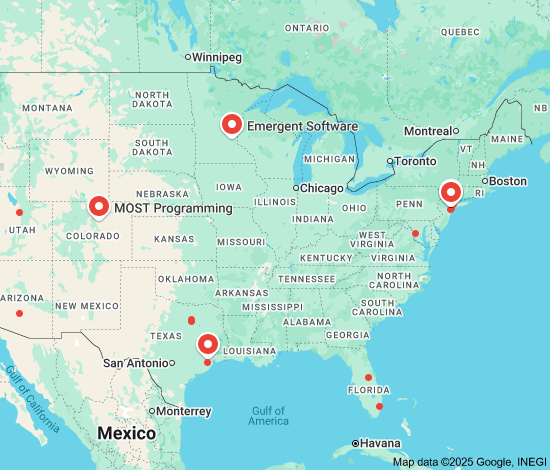The Benefits of Implementing an RFID Warehouse Management System
In today’s fast-paced and highly competitive business environment, efficient warehouse management is crucial for the success of any company. One technology that has revolutionized warehouse operations is Radio Frequency Identification (RFID). An RFID Warehouse Management System (WMS) offers numerous benefits that can streamline processes, improve accuracy, and enhance overall efficiency.
Improved Inventory Accuracy
RFID technology enables real-time tracking of inventory items as they move through the warehouse. Each item is tagged with a unique RFID tag that can be scanned remotely using RFID readers. This eliminates the need for manual data entry and reduces the risk of human error, leading to significantly improved inventory accuracy.
Increased Efficiency
With RFID WMS, warehouse staff can quickly locate and retrieve items from shelves without the need for extensive searching. This leads to faster order fulfillment, reduced picking errors, and improved overall efficiency in warehouse operations. RFID also enables automated data capture, allowing for faster processing of incoming and outgoing shipments.
Enhanced Visibility and Traceability
RFID technology provides real-time visibility into the movement of inventory items throughout the warehouse. This visibility allows managers to track the location of items at any given time, identify bottlenecks in the workflow, and make informed decisions to optimize processes. Additionally, RFID tags can store valuable information such as product details, expiration dates, and batch numbers for enhanced traceability.
Cost Savings
By improving inventory accuracy, increasing efficiency, and enhancing visibility, an RFID WMS can help companies reduce operational costs associated with excess inventory, stockouts, manual errors, and inefficient processes. The streamlined operations enabled by RFID technology result in cost savings that contribute to the bottom line.
Conclusion
In conclusion, implementing an RFID Warehouse Management System offers a wide range of benefits for companies looking to optimize their warehouse operations. From improved inventory accuracy to increased efficiency and cost savings, RFID technology plays a crucial role in driving operational excellence in today’s competitive business landscape.
Understanding RFID Warehouse Management Systems: Top 8 FAQs
- What is an RFID Warehouse Management System?
- How does RFID technology work in warehouse management?
- What are the benefits of implementing an RFID WMS?
- What types of items can be tracked using RFID in a warehouse?
- Is RFID technology compatible with existing warehouse management systems?
- How does RFID improve inventory accuracy in warehouses?
- What security measures are in place to protect data transmitted via RFID tags?
- Can an RFID WMS integrate with other business systems such as ERP or CRM?
What is an RFID Warehouse Management System?
An RFID Warehouse Management System is a sophisticated technology solution that leverages Radio Frequency Identification (RFID) technology to streamline and enhance warehouse operations. It allows for the automatic identification and tracking of inventory items using RFID tags and readers, eliminating the need for manual data entry and improving inventory accuracy. By providing real-time visibility into the movement of goods, optimizing processes, and increasing efficiency, an RFID Warehouse Management System plays a pivotal role in modernizing warehouse management practices and driving operational excellence in businesses of all sizes.
How does RFID technology work in warehouse management?
RFID technology works in warehouse management by utilizing radio frequency signals to wirelessly identify and track inventory items throughout the warehouse. Each item is tagged with a unique RFID tag that contains electronic information. RFID readers emit radio waves to communicate with these tags, capturing data such as item location, movement, and other relevant details in real-time. This data is then transmitted to the warehouse management system, enabling managers to monitor inventory levels, streamline operations, and make informed decisions to optimize efficiency and accuracy within the warehouse environment.
What are the benefits of implementing an RFID WMS?
Implementing an RFID Warehouse Management System (WMS) offers a multitude of benefits for businesses seeking to enhance their warehouse operations. One key advantage is the improved inventory accuracy achieved through real-time tracking of items using RFID technology, reducing errors and streamlining inventory management. Additionally, an RFID WMS increases efficiency by enabling quick item retrieval and automated data capture, leading to faster order fulfillment and smoother workflow processes. Enhanced visibility and traceability provided by RFID technology empower managers to make informed decisions, optimize operations, and ensure better control over inventory movement. Overall, the implementation of an RFID WMS results in cost savings, operational efficiency improvements, and a competitive edge in today’s dynamic business landscape.
What types of items can be tracked using RFID in a warehouse?
RFID technology in a warehouse can track a wide range of items, including but not limited to inventory stock, equipment, tools, and assets. From individual products and pallets to containers and vehicles, RFID tags can be attached to virtually any item to enable seamless tracking and monitoring throughout the warehouse. This level of visibility allows for improved inventory management, streamlined operations, and enhanced efficiency in handling various types of items within the warehouse environment.
Is RFID technology compatible with existing warehouse management systems?
One frequently asked question regarding RFID warehouse management systems is whether RFID technology is compatible with existing warehouse management systems. The answer to this question largely depends on the specific capabilities and integration options of the existing WMS. In many cases, RFID technology can be seamlessly integrated with current warehouse management systems through APIs or middleware solutions. This integration allows for the synchronization of data between the two systems, enabling real-time tracking and visibility of inventory using RFID tags. Companies considering implementing RFID technology should assess their current WMS infrastructure and consult with RFID experts to determine the best approach for compatibility and integration.
How does RFID improve inventory accuracy in warehouses?
RFID technology significantly enhances inventory accuracy in warehouses by enabling real-time tracking of inventory items as they move through the facility. Each item is equipped with a unique RFID tag that can be scanned remotely using RFID readers, eliminating the need for manual data entry and minimizing the risk of human error. This automated tracking system ensures that inventory counts are always up-to-date and accurate, leading to improved visibility into stock levels, reduced instances of misplaced items, and enhanced overall inventory management efficiency.
What security measures are in place to protect data transmitted via RFID tags?
Security measures play a critical role in protecting data transmitted via RFID tags in a warehouse management system. To safeguard the information stored on RFID tags, encryption techniques can be employed to secure data transmissions and prevent unauthorized access. Access control mechanisms, such as authentication protocols and user permissions, help ensure that only authorized personnel can interact with the RFID system. Additionally, implementing secure communication channels and monitoring for any suspicious activities can further enhance the security of data transmitted via RFID tags, providing companies with peace of mind regarding the confidentiality and integrity of their warehouse information.
Can an RFID WMS integrate with other business systems such as ERP or CRM?
One frequently asked question regarding RFID Warehouse Management Systems is whether they can integrate with other business systems such as Enterprise Resource Planning (ERP) or Customer Relationship Management (CRM) software. The answer is yes, an RFID WMS can indeed integrate seamlessly with ERP and CRM systems. This integration allows for the exchange of data between different systems, enabling a holistic view of warehouse operations and enhancing overall business processes. By integrating RFID technology with ERP and CRM systems, companies can achieve greater efficiency, improved accuracy, and better decision-making capabilities across their entire supply chain.




